Search Results
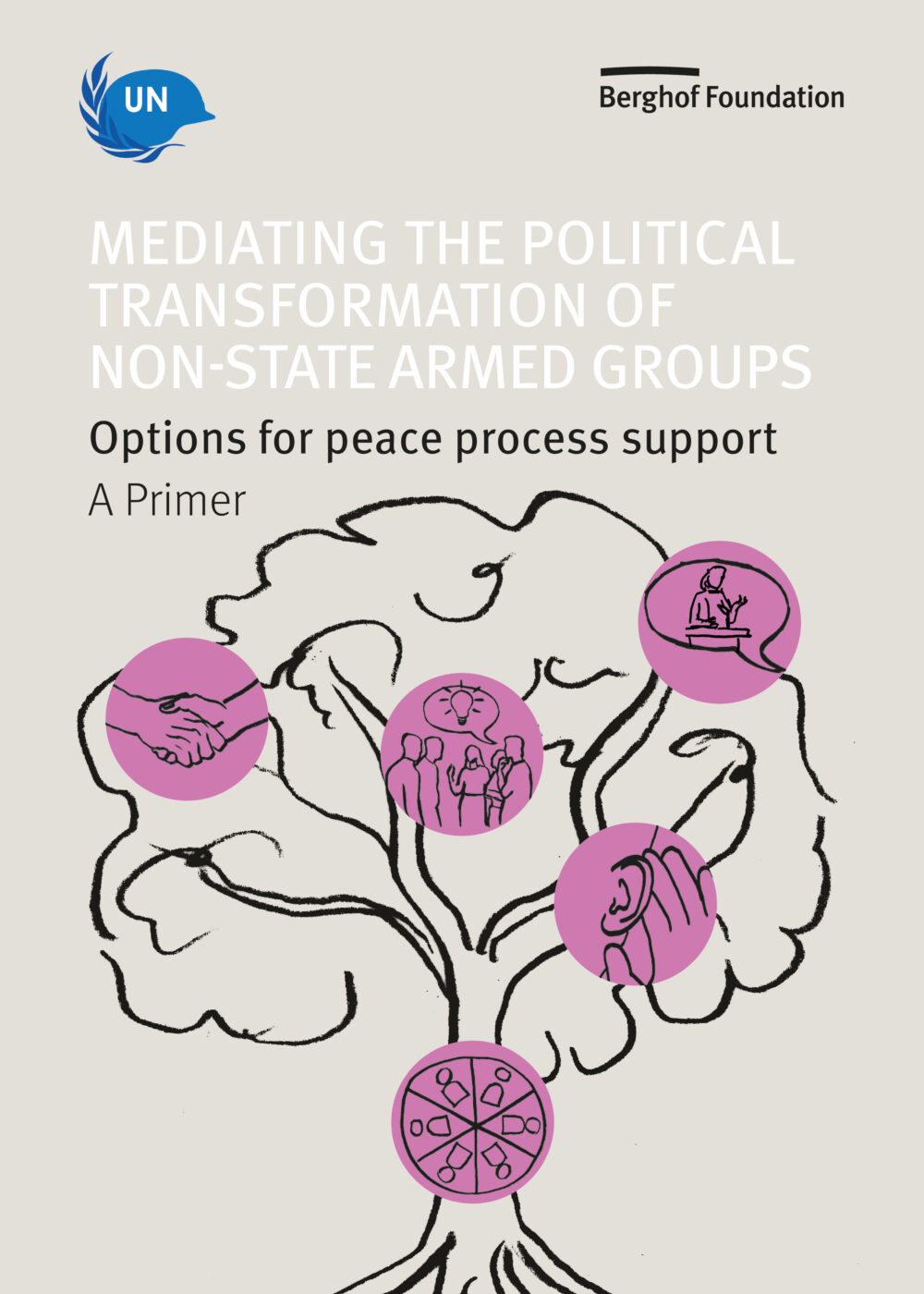
Mediating the political transformation of non-state armed groupsOptions for peace process support
The purpose of this primer is to provide guidance to mediators and other peace support actors, including (when relevant) DDR practitioners, on enabling a successful political transformation of armed groups as part of peace processes. It addresses key questions which need to be considered in peace mediation and the resulting negotiated agreements, such as: Who can best support political transformation during peace processes? When to consider such involvement? How to ensure that the content and sequencing of peace accords are conducive to effective political transformation?
- Year 2025
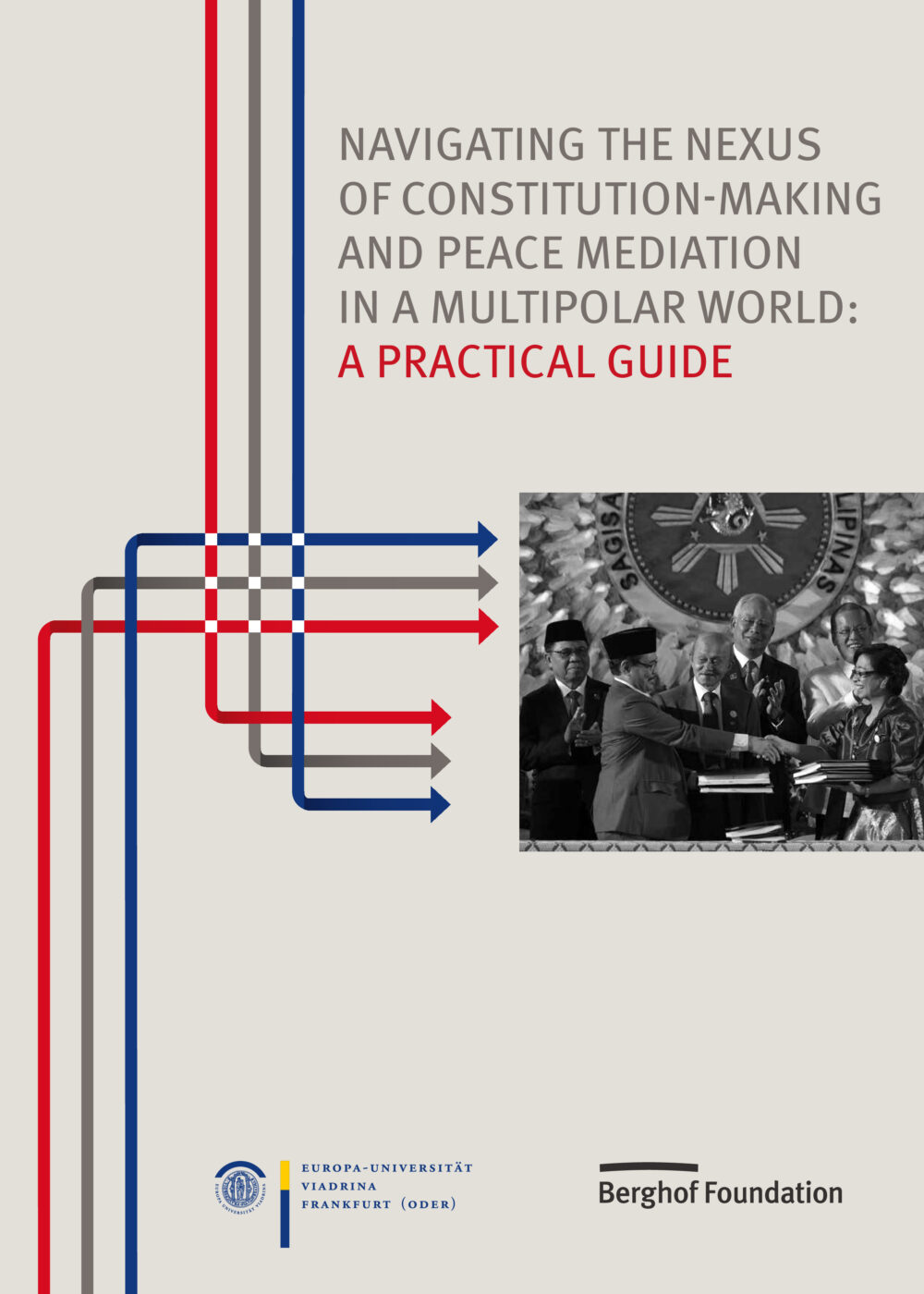
Navigating the nexus of constitution-making and peace mediation in a multipolar worldA practical guide
Peace mediation almost inevitably deals with issues of constitutional relevance, and constitution-making efforts in fragile contexts are intensely affected by parallel or previous peace talks. Nonetheless, constitution-making and peace mediation are not necessarily coordinated or well-integrated. Neglecting the ‘constitution-mediation nexus’ can have tremendous consequences, undermining and devaluating both processes and their aspired outcomes. This guidance aims to support constitution-making and peace mediation practitioners in navigating the nexus in times of geopolitical change by providing an analytical framework and methodological toolbox.
- Year 2025
- Author(s) Claudia Wiehler, Lars Kirchhoff, Luxshi Vimalarajah, Anna Dick, Carla Schraml, Felix Würkert
DE
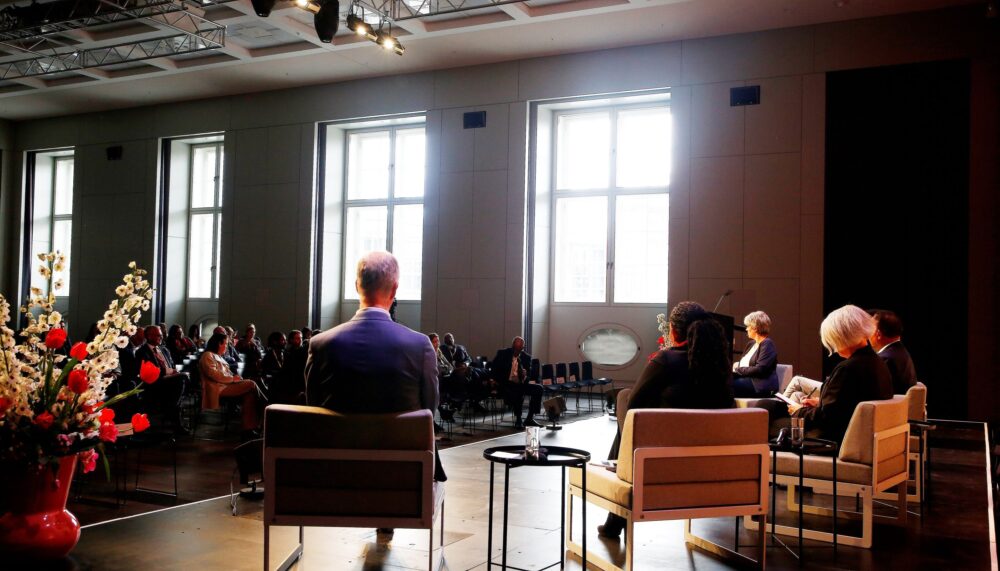
Video: Dynamics of peace processesBuilding on The Berlin Moot’s call for innovative approaches to mediation
Watch the recording of our event to learn more about the role of mediators, donors, location and space in shaping peace processes.
- event 3 Jun 2025
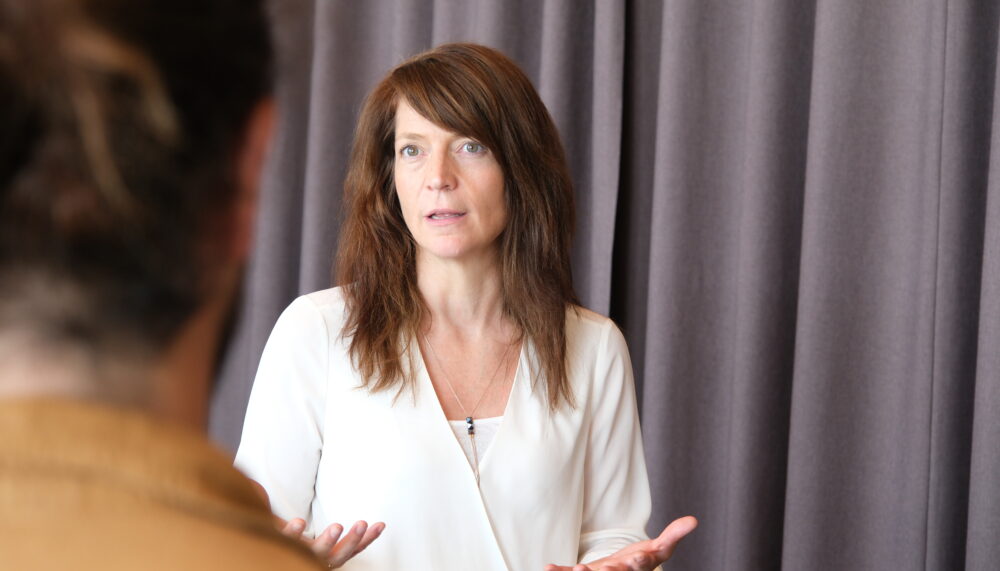
"Globalised conflicts require mediation to evolve"Interview with our new Head of Unit Europe, Dr Christina Horváth-Stenner
Christina spoke with us about her experience in high-level negotiations, her goals for Berghof’s Europe work, and what trampoline jumping teaches us about mediation.
- feature 18 Jun 2025

Video: Psychology and peacemakingThe inner dynamics of peace negotiations
Watch the recording of our event to learn more about how psychological insights can support more effective negotiation and mediation strategies.
- event 19 Jun 2025
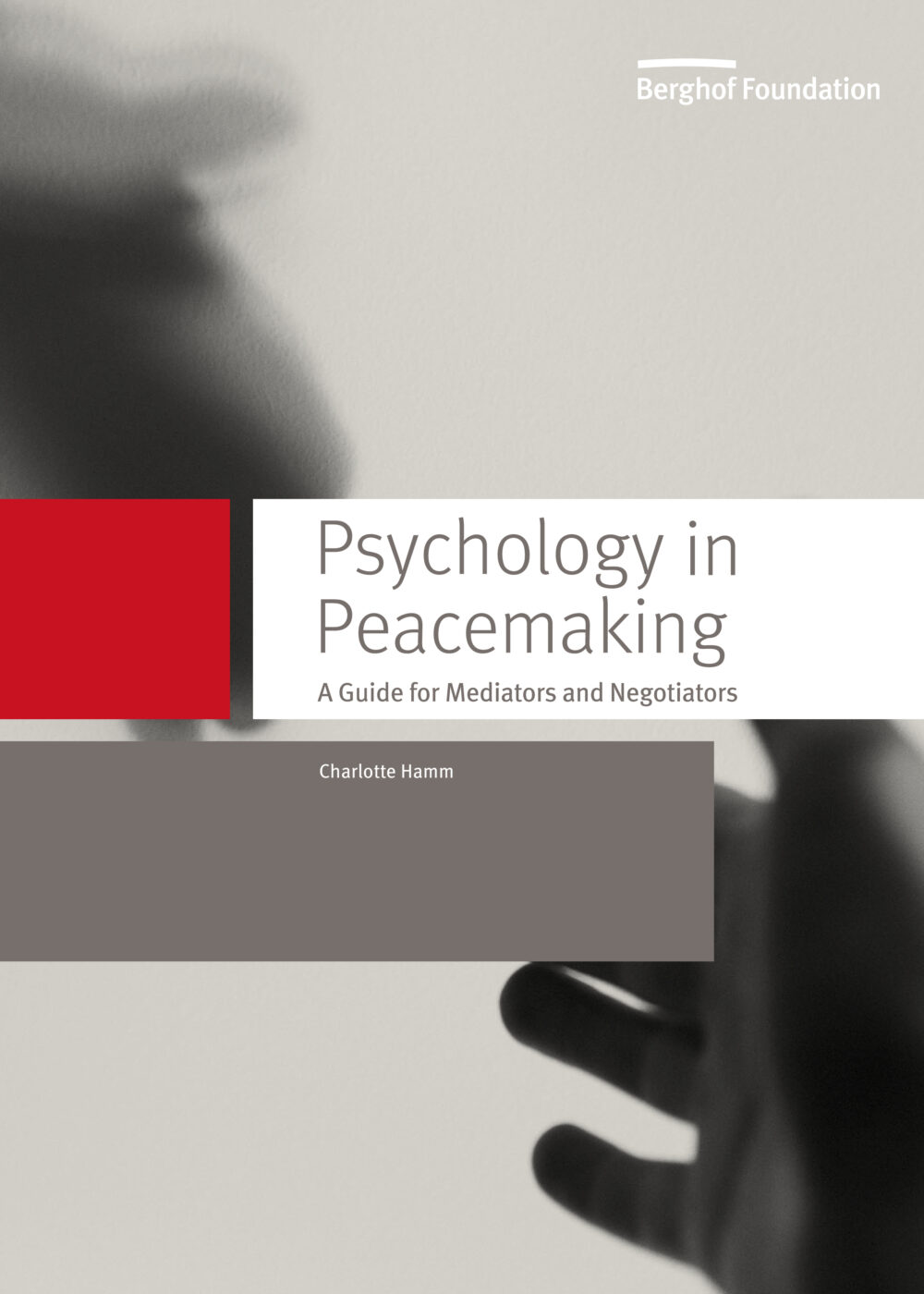
Psychology in PeacemakingA Guide for Mediators and Negotiators
In an era of shifting geopolitics, fragmented conflicts, and fast-track peace deals, the human dimension of peacemaking is too often overlooked. At the heart of any negotiation lies the human factor: a complex interplay of emotions, trust, trauma, and other psychological elements. Drawing on over 40 interviews with negotiators, mediators, and psychologists, this guide offers practical strategies and psychological insights to support those involved in peace processes, bridging the gap between psychological understanding and peacemaking. Designed as a hands-on toolbox, the guide provides adaptable tools to help negotiators and mediators navigate the emotional and relational complexities of peacemaking, from managing trauma and difficult personalities to fostering trust, mindset transformation, and rehumanisation.
- Year 2025
- Author(s) Charlotte Hamm

In memoriam Dr Norbert Ropers
We mourn the passing of our beloved colleague, Dr Norbert Ropers, with great sadness and deep respect for his unwavering commitment.
- feature 30 Jun 2025
